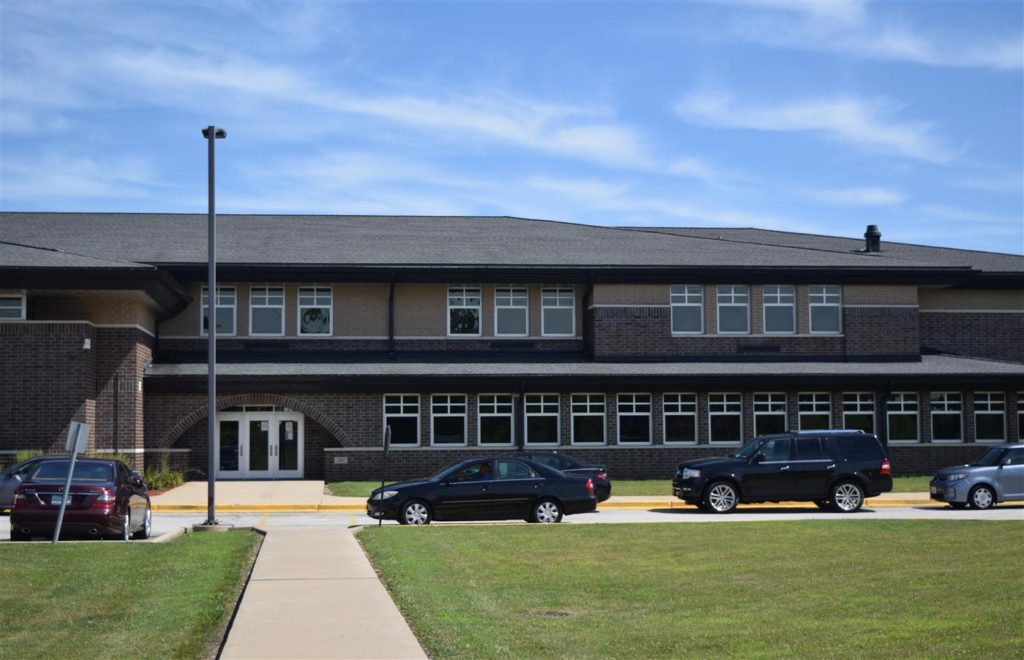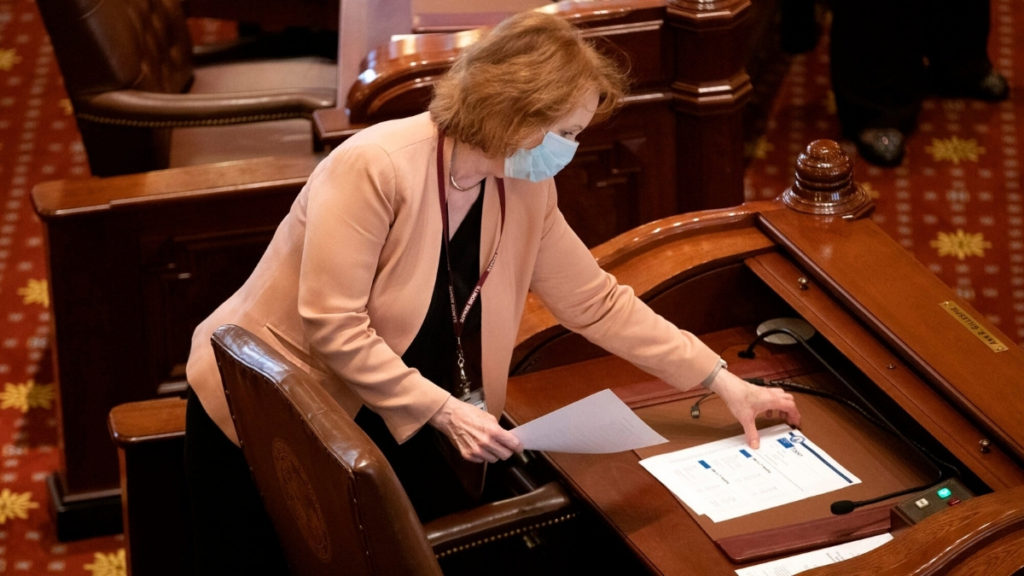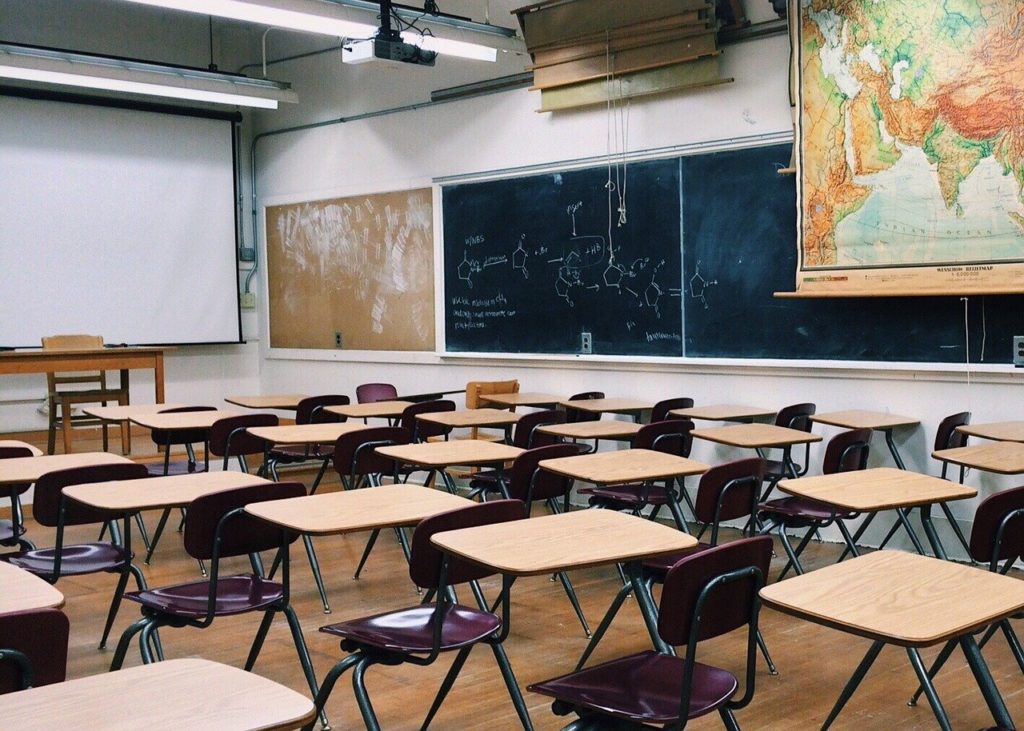Illinois Dramatically Limits Use of Seclusion and Face-Down Restraints in Schools

![]()
Update: In a statement issued Monday, Illinois Gov. J.B. Pritzker confirmed he plans to sign the bill, saying the legislation will “better protect students, particularly our youngest, disabled and most vulnerable children.”
Illinois Dramatically Limits Use of Seclusion and Face-Down Restraints in Schools (Springfield, IL) – Illinois lawmakers took sweeping action Sunday to limit the use of seclusion and restraint in schools, following through on promises made after a 2019 ProPublica-Chicago Tribune investigation revealed that school workers had regularly misused the practices to punish students.
The House voted unanimously to pass legislation barring school workers from locking children alone in seclusion spaces and limiting the use of any type of isolated timeout or physical restraint to when there’s “imminent danger of physical harm.” The legislation requires schools that receive state funding to make a plan to reduce — and eventually eliminate — the practices over the next three years. Schools that develop plans more quickly can receive priority for new grant funding for staff training.
A main feature of the legislation — and the element that proved most contentious among lawmakers over the past 18 months — is an immediate ban on schools’ use of prone, or face-down, restraint for most students. Restraining a student that way would be permitted only for children whose special-education plans specifically allow it as an emergency measure and only until the end of the 2021-22 school year, granting schools more time to phase out the practice than some legislators and advocates sought.
Rep. Jonathan Carroll, a Democrat from Northbrook who sponsored the House bill, has described his enduring trauma after being secluded in school as a child.
“This has been a long journey for a lot of us,” Carroll told a House committee Friday before it referred the bill for the full vote in the House. “We’ve got to stop these practices from happening. We’ve got to get this right.”
The Senate previously voted 52-1 to pass the bill. The legislation now goes to Gov. J.B. Pritzker, who has called the isolation of children “appalling” and said he would work with legislators to ban it. Face-down floor restraints and seclusion, the act of confining children to small rooms as a behavioral intervention, have been legal in the state for decades.
The existing law allows school workers to use seclusion and restraint when there is a safety concern and requires no oversight. While lawmakers debated changes, state officials adopted new rules that require schools to report to the state when a student is put in seclusion or restraint. Under the bill awaiting Pritzker’s signature, the Illinois State Board of Education would be directed to sanction schools that misuse the practices.
An effort to ban seclusion in schools nationally also began anew last week. The Keeping All Students Safe Act was reintroduced jointly by House and Senate Democrats on Wednesday as U.S. lawmakers said they were committed to ending not only seclusion and prone restraint but also supine restraint, in which students are placed on their back and held down. Such legislation has stalled in Congress several times since 2009.
Illinois legislators began working to ban seclusion and restraint after a Tribune-ProPublica investigation in late 2019 revealed that some schools routinely locked children in closet-like seclusion rooms to force them to complete schoolwork, for being disrespectful to employees or for behavioral infractions as minor as spilling milk. Inside the small spaces, children sometimes cried for their parents, tore at the walls or urinated when they were denied use of the bathroom.
Although ISBE and public schools supported legislation to limit the use of seclusion and restraint, a handful of private schools lobbied against the measure, which extended the debate. They argued that prone restraint should be allowed for students in crisis.
A bill that the Senate unanimously passed during the previous session in January would have banned prone restraint immediately, but the legislation stalled in the House. In the current session, the House unanimously passed a revamped measure that addressed the private schools’ concerns and would have allowed some use of prone restraint until 2023, but the Senate balked, with some lawmakers arguing that the schools already had ample time to phase out the practice. The Senate amended the bill to end the practice in 2022, and the House agreed to that change.
Sen. Ann Gillespie, a Democrat from Arlington Heights who championed the bill, pushed for the immediate ban on prone restraint for all students instead of the two-year phase-out period that the House had adopted. “There has already been over a year where schools knew this was coming,” she said.
Gillespie said research from the Council of State Governments showed that of the 32 states that had banned prone restraint in schools, the average length of time to phase out the practice was three months. Nineteen states made the ban effective immediately, Gillespie said.
“After a year and a half of negotiations, the state of Illinois finally has a path toward the ultimate goal of eliminating the abusive practices of seclusion rooms,” said Kyle Hillman, director of legislative affairs for the National Association of Social Workers. While he said the bill falls short of ending prone restraint for all students immediately, he called it “a real win for the children currently facing these traumatic interventions.”
“Hopefully we will never have to read another story in Illinois about the trauma children like Jace Gill endured,” Hillman said. “Change is coming.” The Tribune-ProPublica investigation described how Jace urinated and defecated after being put in a seclusion room at his school for children with disabilities. School officials have not responded to questions about specific incidents.
The new legislation requires that school workers allow students to have food, water and medication and to use a bathroom while being secluded. The news investigation found students were on occasion secluded through lunchtime and workers sometimes ignored requests to use a bathroom.
Prior to the “Quiet Rooms” investigation, the state didn’t monitor schools’ use of seclusion and restraint. ISBE now requires schools to report all incidents within 48 hours.
On Thursday, ISBE provided data to the Tribune and ProPublica that showed nearly 2,400 students were secluded or restrained more than 15,000 times in the past 10 months, a time when many schools were closed because of the COVID-19 pandemic. More than 90% were students with disabilities. More than 8 in 10 students were boys, and a quarter were Black. Less than 17% of students in the state’s schools are Black.
Two of every 10 students were in prekindergarten, kindergarten or first grade.
The data also indicates that schools continued to use prone restraint even after state officials said it was dangerous and began to restrict its use. Students were held face-down more than 100 times during the past 10 months.
Some advocates for people with disabilities said they had hoped that prone restraint would have ended immediately for all students, but they acknowledged the new legislation far exceeded what was in place.
“As much as we don’t like the fact that this is going to continue for another school year, this is a very narrow exception,” said Zena Naiditch, president and CEO of Equip for Equality, the federally appointed watchdog group for people with disabilities in Illinois. “In some states you’ve had children die or get serious injuries. And in some cases it puts staff at risk. They’re very violent interventions.”
Illinois Dramatically Limits Use of Seclusion and Face-Down Restraints in Schools








Responses